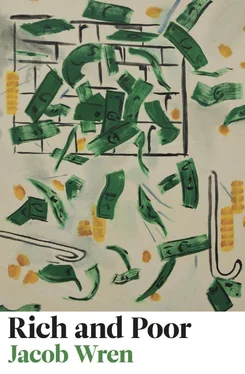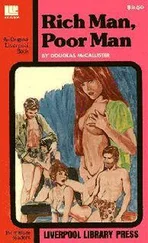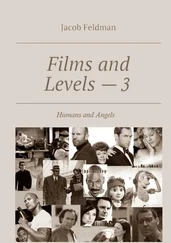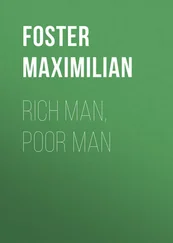With the eviction at the forefront of my mind, I started piling up the reports in the alleyway behind my building. It took me an entire week to move them all; I couldn’t believe how many I had collected or how big the eventual pile was, like a mountain of pure greed. The night before they kicked me out, I set fire to the mountain and watched it burn for five hours. I expected fire trucks and police but none came. I expected the whole city to burn but the flames kept to themselves, much like the neighbours who I suppose decided to mind their own business and not call the police. As I watched, I imagined it was the corporations themselves that were burning: their headquarters, the CEOs, the private security companies hired to protect them. I imagined that for every forest that was clear-cut, one corporate headquarters building burst into flame as if by magic. For every mother forced to watch her infant starve to death on the poverty wages her husband brought in, one CEO would spontaneously combust. I remember that fire. For five hours I fantasized until the last embers turned black at the brink of dawn. That night was the first step of my long journey back to sanity, towards a more coherent worldview, and also the first kernel, the very beginning, of my eventual plan.
1.
Capitalism is not the simple desire to make a profit. Capitalism is the fantasy that growth can continue at a consistent rate indefinitely. When a child is young, it cannot yet imagine being an adult, so it thinks it will keep growing forever. The fantasy that you can grow forever is exhilarating, one of the many aspects that make children seem so alive. We live in fantasy, all of us, all of the time, to a greater or lesser extent.
Business, on the other hand, is the simple desire to make a profit, along with, if you’re lucky, a desire to produce something useful in the world. If you are running a business in this day and age, you are of course doing so within the framework of capitalism. Business is the yoke, capitalism the shell. You cannot write a business plan saying: we just want to make enough money to be comfortable and after that we have no particular desire to grow. (Or you can but it would be difficult to find investors.) You need to project annual growth, as much as possible.
When I was young, I could not possibly imagine obtaining wealth. My father never spoke of such things, and I believe he never thought much of them either. He worked every day and took whatever money they gave him. It was enough to get by, most of the time. I would watch my father carefully, full of childish suspicions, thinking (or was I only hoping) that there must be some easier way. Or perhaps I was hoping no such thing. There are so many details we fill in imaginatively when we tell stories from the distant past. My father died when I was still poor, and sometimes, in more reflective moments, I wonder what he would think of all this: the private planes, posh restaurants (where occasionally I spend more in one night than they would have spent in six months), and endless waves of work, meetings and more work.
Allow me to get sentimental for a moment (as if it was possible to stop me). I spent a great deal of time in the hospital with my father in the weeks leading up to his death. He was a quiet man, didn’t talk much, as was the fashion for men of his generation. But in the hospital we talked like we’d never talked before. He told me so many things, and what I grew to understand — what I had never understood before — is that he had lived his life afraid. I didn’t want to be afraid, and in one of our last quiet moments together I told him so. I was wrong, he told me, carefully explaining, wanting to set the record straight before it was too late. From the outside it might look like fear, might have appeared that time and time again he had backed down, but inside he had always been content, always felt he had remained focused on the things that were important in life: his family, being relaxed, working efficiently and with integrity, enjoying the small pleasures that each day is kind enough to grant us. He seemed pleased to have explained all this and, not wanting to argue with a dying man, I agreed with him, thanked him for his words, told him they were beautiful and true.
But even then I thought he was lying, both to me and to himself, and that he had in fact lived his life in fear. (I still wonder today whether he knew he had failed to convince me or if I had managed to reassure him.) What’s more, it was then I realized that in our last intimate talks, by telling him I knew he was a coward, by seeing through him like that, I had somehow gained the upper hand. I was no longer only his child but also something else, someone who had something on him, who had some small power over him, and he was now afraid of me too. Saying what he did, that he had always been content, was just another way of backing down, like he had his entire life. Later that week he died. I cried when the doctor phoned me. In fact I cried a lot, but nonetheless, I was never going to be like that. I was never going to back down.
2.
His book, his autobiography, is in my hands and fuelling my rage. I saw it in the window as I was walking by a bookstore and the coincidence struck me like a hammer. I quickly shoplifted one — there was no way I was giving that bastard more money — and am reading it now, still amongst the early pages. What strikes me most is his strange mix of pathos and showmanship. He has doubts, endless moments of doubt, but each and every time he overcomes them and finds his way towards doing exactly the most evil thing he can come up with. It is masterful the way he humanizes himself, since we can all relate to having little moments of struggle, only to turn it around, or inside out — always this constant rejection of basic human values in favour of his own endless egotism. He is self-aware, constantly including himself among the avaricious assholes who have created a world that, if he is honest with himself, not even he wants to live in anymore. But at the same time, he is strangely proud of having created this world. For him, it was an act of will.
I read a few pages then violently throw the book across the room, do something else for awhile, or do nothing, before curiosity eventually gets the best of me and begrudgingly, like a chastened slave, I walk across the room to pick it up off the floor and continue reading. Even after twenty pages the book looks like it has been through a meat grinder. I’m throwing it as hard as I possibly can. But after a few days I start to feel stupid and put the book aside. I’m only halfway through but it’s enough for now. There’s little in the book that would help me get closer to him, but much in it that might help me win his trust once I eventually do.
There are three private security companies he regularly signs contracts with and I have now applied for jobs at all of them. My resumé is only partly forged, so we will have to see how thoroughly they check. I have three chances but, for now, I am only waiting for a phone call. While I wait, I read about security, about bodyguards, about bulletproof jackets and armoured cars. For money I’m washing dishes a few nights a week in whatever place will take me. I work quietly and efficiently, without incident. I don’t need much money so work as little as possible. I keep my phone turned on from nine to six, in case I am called in for an interview. Then in the evening keep it turned off. I talk to almost no one and, when I do, keep the topics light, making light-hearted jokes whenever possible. My heart is not light but, for short stretches, I believe I get away with it. I would find all this beyond boring if I was not so focused on a single goal, a goal that will end my freedom but, hopefully, start something much larger. Life without a goal, without a fulcrum, without a single point of intensity around which everything else can swirl, is not worth living. My life, however dull, is.
Читать дальше












